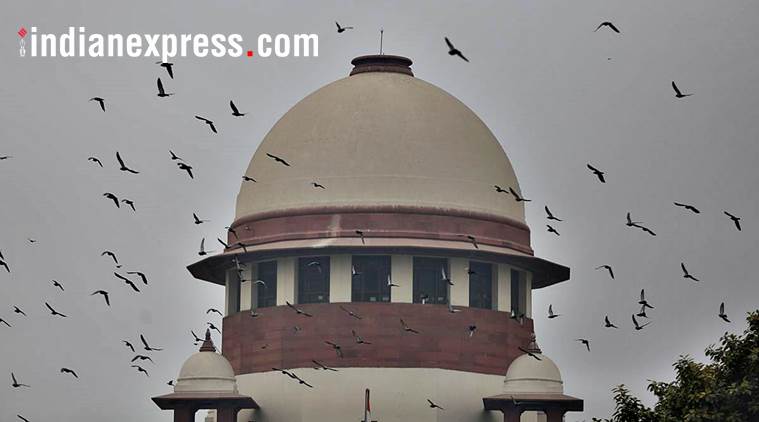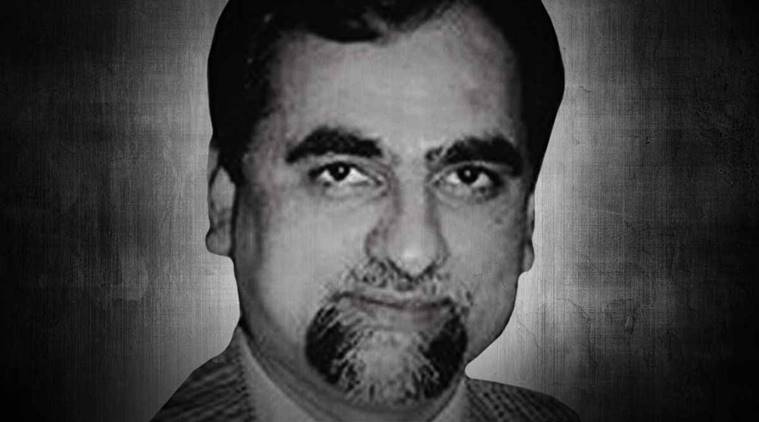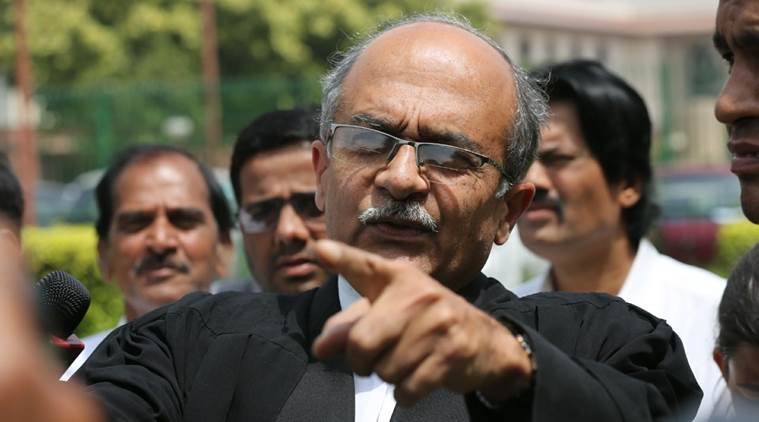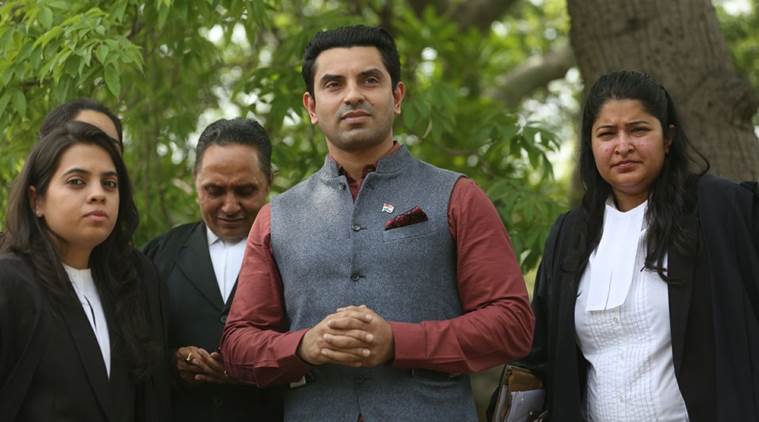 The Supreme Court of India rejected any independent probe in the death of Judge BH Loya (Express Photo by Tashi Tobgyal)
The Supreme Court of India rejected any independent probe in the death of Judge BH Loya (Express Photo by Tashi Tobgyal)
Ruling out foul play in the death of CBI Special Judge Brijmohan Harikishan Loya, the Supreme Court Thursday concluded that he had died of “natural causes” and dismissed petitions seeking inquiry into the circumstances of the death.
The court, which went into medical and other evidence brought on record, criticised the petitioners, saying the pleas were a “veiled attempt to launch a frontal attack on the independence of the judiciary and to dilute the credibility of judicial institutions.” The judgment held that their conduct prima facie amounted to criminal contempt but spared them of any contempt action.
“The documentary material on the record indicates that the death of Judge Loya was due to natural causes. There is no ground for the court to hold that there was a reasonable suspicion about the cause or circumstances of death which would merit a further inquiry,” said Justice D Y Chandrachud who wrote the judgment for the three-judge bench headed by Chief Justice of India Dipak Misra and comprising Justice A M Khanwilkar.
The bench found it a case of misuse of Public Interest Litigation and expressed its anguish at the manner in which the proceedings were conducted. It said “the conduct of the petitioners and intervenors scandalises the process of the court…”
It said advocate Prashant Bhushan had argued that Justices Khanwilkar and Chandrachud being from Maharashtra may have known the four judicial officers connected with the matter and rued that “even the judges of this Bench hearing the present proceedings, have not been spared from this vituperative assault on the judiciary”.
 Special CBI judge Brijmohan Harikishan Loya
Special CBI judge Brijmohan Harikishan Loya
The judgment dwelt on the statements given by four judicial officers, Judges Shrikant Kulkarni, S M Modak, V C Barde and R R Rathi regarding the circumstances surrounding the death during a “discreet inquiry” conducted by the Maharashtra State Intelligence Department (SID) and said these were “clear and consistent” and there was no reason to doubt them.
Loya, 48, records show, died of a heart attack in Nagpur on December 1, 2014, a day after he attended the wedding and reception of the daughter of fellow judge Swapna Joshi, who is now a judge in the Bombay High Court.
His death became a controversy following a report in the Caravan magazine which quoted Loya’s sister and father suggesting foul play and a cover-up. A subsequent investigation by The Indian Express found that many of the claims made by the Caravan report were not supported by evidence on the ground, including official records.
The court said the statements of the four judges “have a ring of truth.” The judges, it ruled “had nothing to conceal nor an axe to grind…Reading them it is clear that they have been submitted without pre-meditation. The four judicial officers acted responsibly. There was no reason for them either to hasten or to cause a delay in submitting their versions of what they knew. Each of the four judges has acted with a sense of duty. This is how they would be expected to conduct themselves, in answering to a call of duty.”
The top court was also critical of petitioner’s counsel Dushyant Dave referring to proceedings related to a 1991 case in which five persons including Maharashtra Chief Minister Devendra Fadnavis had got relief from a High Court bench of Justices B R Gavai and V M Deshpande.
 Senior advocate Prashant Bhushan had alleged foul play in the death of Judge Loya (Express photo by Tashi Tobgyal)
Senior advocate Prashant Bhushan had alleged foul play in the death of Judge Loya (Express photo by Tashi Tobgyal)
Speaking to The Indian Express, Gavai had said that he had gone to Meditrina hospital where Loya was shifted after he got a call from the Bombay High Court Registrar.
Taking umbrage, the court said: “The attempt of the petitioners is to create prejudice and to malign the dignity of the judges, particularly of Justice B R Gavai…This is another instance in the course of the hearing of the present case where a matter extraneous to the subject of the inquiry before the court has been sought to be relied upon to somehow sensationalise the case. What is worse is the manner in which wholly unfounded aspersions have been cast on the judges of the Bombay High Court following a decision which has been taken in the judicial capacity. This constitutes a serious attempt to scandalise the court and obstruct the course of justice”.
It termed Dave’s charge that “one individual is controlling the entire judiciary in Maharashtra and elsewhere” an insinuation. The senior advocate had alleged that the facts were fudged to protect BJP President Amit Shah who was one of the accused in the Sohrabuddin Sheikh encounter case. Loya was presiding over the case when he died. Shah was later discharged.
The petitions questioned why someone who suffered a heart pain was first taken to small hospital like Dande in Nagpur where he had gone on a wedding and not to a specialised cardiac care facility.
 Tehseen Poonawalla, an activist, outside the Supreme Court on Thursday. He is one of the petitioners who moved the top court seeking an independent probe into the death of Judge B H Loya. (Express Photo by Tashi Tobgyal)
Tehseen Poonawalla, an activist, outside the Supreme Court on Thursday. He is one of the petitioners who moved the top court seeking an independent probe into the death of Judge B H Loya. (Express Photo by Tashi Tobgyal)
Answering this, the court said the “line of argument is without merit” and that his colleagues’ decision to take him to Dande was “in good faith” and “cannot be questioned”. The bench stated that “to attribute motives to his colleagues who were with him and took immediate steps to shift him to a hospital nearby is absurd, if not motivated. In hindsight, it is easy to criticise actions which are taken by human beings when faced with an emergency. It is easy for an observer sitting in an arm-chair at a distant point in time to assert that wisdom lay in an alternate course of action. That can never be the test for judging human behaviour”.
The judgment junked claims that no ECG was done on Loya at the Dande hospital. Citing medical records of Dande and the Meditrina hospital where he was shifted from Dande and the “death summary”, the court said “we find no reasonable basis to infer that no ECG was done at the Dande hospital”.
The Caravan report had said that Loya was taken to Dande in an autorickshaw. But the court found that both Judge Kulkarni had stated that Loya was taken in Judge Barde’s car to the hospital. This was also reaffirmed by the statements of Judges Modak, Barde and Rathi, it said. “The allegation that Judge Loya was not provided even a car to travel from Ravi Bhavan to Dande hospital and onwards to Meditrina is a red-herring”, the judgment said.
The court also junked claims that none of the four judges had met the family of Loya in Mumbai soon after his death saying Modak had said that he and Judge Kulkarni had met the family at their Haji Ali residence.
On the argument that he could not have been wearing a trouser and shirt when he suffered a heart attack, the judgment said “to urge that the depiction of the clothes worn by Judge Loya casts doubt on the sequence of events narrated by the judicial officers is…untenable”.
“Judge Kulkarni and Judge Modak”, the court found “were with Judge Loya from the time that the three officers left Mumbai for the wedding at Nagpur and until Judge Loya died on 1 December 2014. They have provided a trustworthy account of their schedule since they left Mumbai. All of them travelled together, stayed together, visited local judges at Nagpur, attended the wedding and remained in the company of each other and their friends in the judicial fraternity”, it said.
Advocate Indira Jaising had said that the date of death was mentioned in the post-mortem as December 7. But the court found that the date “is clearly mentioned as 1 December 2014”.
On the claims by Caravan that Loya’s body was sent to his home town Gategaon unaccompanied, the court said “the allegation…is contrary to what has emerged on the record”. Judges Kulkarni, Modak and Barde had disclosed that two other local judges had accompanied the body in a car, it said.
The petitioners disputed that Judge Loya stayed at the Ravi Bhavan in Nagpur. However, the court pointed out that even the Caravan article had said that Loya had a conversation with his wife on the night of 30 November 2014 and had informed her that he was staying at Ravi Bhavan guest house together with the judges who had accompanied him to Nagpur.
The bench found that Judges Kulkarni, Modak and Loya stayed at Ravi Bhavan, where a VIP suite was booked. They “travelled together by the same train from Mumbai to Nagpur on 29 November 2014 and arrived in Nagpur on the morning of 30 November 2014. They proceeded to Ravi Bhavan where a suite was reserved. During the course of the day, the three judicial officers visited the residences of two judges of the High Court at Nagpur, Justice S B Shukre and Justice P R Bora. They visited the home of Shri Barde and were together all along. They went to the market, returned to Ravi Bhavan and attended the wedding reception in the evening. After dinner the three judges returned to Ravi Bhavan a little before midnight”, the judgment said.
The Bombay Lawyers Association and another petitioner had moved the Bombay High Court seeking a probe in the death of Loya. Simultaneously, PILs were also filed in the Supreme Court. The apex court transferred the Bombay petitions to itself and heard them together.
The court rejected allegations by Loya’s sister that the then Chief Justice of the Bombay High Court Justice Mohit Shah had tried to influence the outcome of the Sohrabuddin case saying the “allegations were hearsay”.